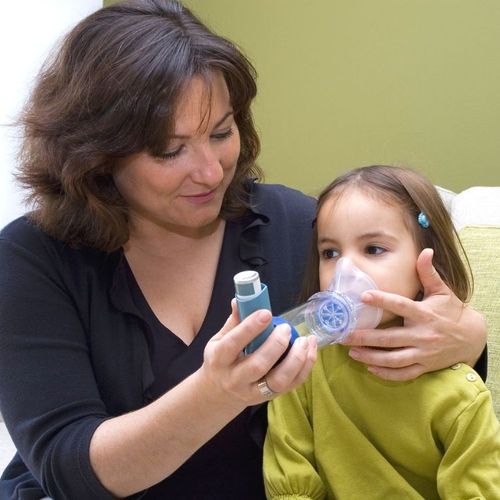Researchers have found evidence that asthma in children is linked to maternal nutrition and stress.
Study #1: Vitamin D
In one study, expectant mothers who took high doses of vitamin D reduced their child's risk for asthma.
Vitamin D deficiency is common in areas where asthma is also widespread, raising the suspicion that the two are connected, says Dr. Carlos Camargo, senior author of the study and an associate professor of medicine and epidemiology at Harvard Medical school in Boston.
Camargo and his team followed 1,300 mother child pairs for more than three years. By the time the children were two years old, there was already a clear association between a higher vitamin D intake during pregnancy and a lower risk of wheezing and asthma in the children, he says. The link after three years was even stronger, Camargo adds.
Results of previous studies have suggested that vitamin D may have an effect on a fetus's developing immune system.
"Doctors should understand that vitamin D insufficiency is real," Camargo says. "It's important to get [vitamin D] from diet or supplements, and the way to do that is through fortified milk, fish and supplements."
Study #2: Asthma And Prematurity
A Canadian study found that pregnant women who have asthma are more likely to have premature and low-birth-weight babies.
This survey of 13,980 children who were born in Manitoba found that mothers who had asthma were, on average, 2.77 times more likely to have a baby born at less than 28 weeks' gestation and 3.04 times more likely to have a baby born at less than 32 weeks' gestation than a nonasthmatic mother.
"Maternal asthma is a risk factor for prematurity and low birth weight in babies, and physicians and other health-care professionals need to assess present and past asthma, even up to five years prior, in order to properly assess risk for premature labor," says lead author Dr. Joel Liem, a research fellow in pediatric allergy and clinical immunology at the University of Manitoba.
Study #3: Asthma And Stress
Another research group at the University of Manitoba found that children were 1.3 times more likely to develop asthma if their mothers experienced stress (defined as visiting a doctor for depression or anxiety or getting a prescription to treat one or both of these conditions). "The highest risk was in children with repeat exposure to mother's stress," says Anita Kozyrskyj, lead author of the study and associate professor of pharmacy and medicine at the University.
Kozyrskyj could only speculate on the possible mechanisms behind this association. "It may be related to the fact that stress alters Mom's behavior, and there is some evidence that stress in the first year of life can cause some changes to the gastrointestinal system," she says.
More Studies
Another recent study found that children and parents of children are overreporting how much asthma medication the child is taking' By one measure, only one-third of the medicine was actually being used.
"Most patients don't follow daily treatment regimens no matter how good their doctors are," says Bruce Bender, lead author and head of pediatric behavioral health at the National Jewish Medical and Research Center in Denver' "That disconnect is huge, and it's a large factor in how well we control asthma in kids and adults."
Another study conducted at the VA Greater Los Angeles Healthcare System found that patients who had intermittent (as opposed to persistent) asthma accounted for nearly half of all asthma related emergency department visits.
